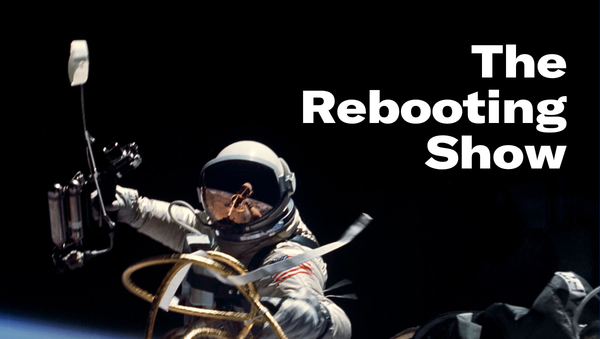Editorial scorecards
Not everything fits in a spreadsheet

This is going to be the last newsletter I send until after Labor Day. I hope everyone is taking a break until then. I’m wrapping up my time in Istria before heading back to Belgrade for a few days and finally back home.
First up, a message from BlueConic, which is hosting a webinar I’m doing with A Media Operator’s Jacob Donnelly and BlueConic’s Patrick Crane.
AI-powered search is set to transform the way content is discovered and consumed. This will have serious implications for publishers who are already under pressure to transform their businesses in the wake of cookie deprecation and platform infighting.
On Sept. 12, from 1pm-2pmET, I’m joining Jacob and Patrick to explore:
- How AI-driven search will change the way publishers create and monetize content
- The intersection between AI-driven search and cookie deprecation preparedness efforts
- What publishers can do to prepare their businesses
Editorial scorecards
The year of efficiency will give way to the more-with-less era, as interest rates settle into a higher norm and the publishing business is driven to focus on the basics and embrace a smaller future. This vastly changed operating landscape will favor newcomers, who haven’t had the chance to build up legacy infrastructures and can start from scratch. But that leaves retooling existing businesses.
I got a note the other week from an executive at a large media business that reminded me of the particular set of challenges big organizations face.
“I know your focus tends to be smaller to medium scale models, but I’d also bring up that sustaining, much less growing, large scale media businesses requires equal the elbow grease. To keep growing at scale you have to execute in several product lines at once, maintain brand fidelity, push beyond the monetization approach that got you to scale, acquire expertise in multiple models (ads, subs, commerce, events, licensing), all the while fighting the inertia of the very simple approach that likely got you to scale in the first place. We are all twisted into pretzels.”
That’s why the media business is hard and will remain hard. It’s also why silver bullets or shortcuts aren’t the answer. At a publishing leaders dinner in Cannes, one “seasoned” exec – this is the term you use to say someone is middle aged – said a cause for optimism was “the end of pivots.”
But that leaves an essential challenge: How do you manage these disparate businesses and wring the absolutely needed efficiency from your operations without driving the quality of your output, which is what brands are built off, into a ditch? I don’t pretend these are easy decisions, particularly within large organizations.
That’s why I have some sympathy for efforts to bring efficiency to editorial operations with a system for tying editorial output to business goals. And with the vast amounts of data now at managers’ fingertips, there’s an inevitable pull to quantify the value created by editorial operations. Publishers have twisted themselves into pretzels trying to tie editorial output to business outcomes for a generation now, and I haven’t heard of a single success story. Instead, these efforts tend to become flashpoints in the running internal feuds between makers and takers.
G/O Media, home to many of the former Gawker Media properties, is the latest entry into this dismal canon. It is following all the similar missteps. It is trying to come up with a one-size-fits all measurement system. In the year of our lord 2023, it is still kneeling at the altar of pageviews, although tweaked with scoring of “engagement.” And it is shoving this quota, sorry “goal,” down editors’ throats without their buy-in. You can imagine how that’s going. About as well as Insider’s “impact points.”
Again, I’m sympathetic to bringing a dollop of spreadsheet energy to editorial. Most journalists nowadays understand the dynamics of the business they’re in, as opposed to previous generations that wore their ignorance of how their companies’ made money as a badge of honor. That’s why these harebrained schemes always get pushback, not because precious “creatives” don’t want the same rigor as the corner–office and second-homes crowd. It’s because they know these systems incentivize worse output and fail to recognize true value in building loyalty and a differentiated brand.
Most of these scorecard efforts are premised on the last generation’s ad models, where tonnage ruled the day. It’s hard to see how they fit with the direction the media business is going: smaller audiences but deeper connections, built from unique point of view.
If you want people creating pageviews, they will inevitably play the well-known pageview games. This is what led publishers to optimize to nowhere, by chasing fleeting trends to ride an algorithm to the appearance of a bigger audience. Those people were really Facebook or Google’s users, not the publishers’. You can see the same mistakes happening again, only this time with AI in the mix. I’m sure on a spreadsheet, AI content will perform well, at least when costs are factored in, yet I doubt many lasting brands will be built off regurgitation of LLM content, leaving aside the inaccuracies.
Even weighting “engagement” is fraught. Tie measurement to subscriptions, you’ll get lots and lots of lists, because subscription quotas are usually based on last click. Do a list of 50 up-and-coming CMOs and you’ll sell some subscriptions. If you want to build a business that’s sustainable in the long term, you’re better off skipping the SKU approach and selling people on the full product rather than hope they forget when the intro offer period ends. Those kinds of games are adversarial to the audience and unlikely to last in the long run.
Many of these systems are a sign of managerial dysfunction and the desire to take a shortcut. Metrics are always a part of evaluating editorial work, but good managers understand it is just a tool and qualitative judgment still plays a larger role. Just as experienced designers know good design without A/B testing, so too do experienced editors know good work.
We discuss this tension on this week’s episode of People vs Algorithms, along with the proposition that mass media is becoming unglued and what we can learn from formerly marquee publishing brands becoming front operations for energy supplements. Check it out wherever you get podcasts. It should be live later today once the edit is finished.
I had plans to write the second part of the Comrades piece, but it will need to wait because I need to get in one of my final swims in the Adriatic. The independent path is not optimized. Send me a note with your feedback by hitting reply.




